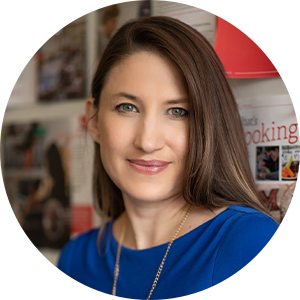Dear Jaime is Volt’s regular advice column. To send Jaime Hunt a question you’d like answered (anonymous or signed, you decide!), you can submit your question here or send an email to dearjaime@voltedu.com.
Dear Jaime:
Leadership at my university is really pressuring me to do awareness campaigns for specific undergraduate academic programs. This doesn’t seem to be a good idea to me, but what arguments can I make? — Strategically Concerned
Dear Strategically Concerned,
Oh boy. I’ve been there! Awareness marketing for academic programs often seems like a no-brainer—it’s the first step in making your program visible to prospective students. But the reality is more nuanced. Without the right strategies, awareness campaigns can easily become black holes for marketing dollars, with little to show in terms of measurable outcomes.
Here are some thoughts you can share about why awareness marketing can be a misstep.
1. Awareness Alone Doesn’t Drive Enrollment
Awareness campaigns often focus on maximum visibility rather than targeting the right audiences or prompting action. Although it’s helpful for prospective students to know your program exists, awareness alone rarely motivates them to inquire, apply or enroll. Prospective students need more than a program name—they need a reason to take the next step.
2. Resource Constraints
Many universities, especially those with limited budgets or smaller teams, lack the resources to compete on broad visibility campaigns. Spreading resources thin on top-of-funnel marketing often means sacrificing efforts further down the enrollment pipeline, where the impact can be greater.
3. Enrollment Happens in the Consideration and Decision Stages
Most prospective students already have a general idea of the programs that interest them. By the time they engage with your institution, they’re likely comparing options or finalizing their decision. If you have a limited budget, I recommend spending your marketing efforts nurturing prospects through these later stages with more targeted, personalized messaging.
4. Too Broad for Niche Programs
Broad awareness campaigns cast a wide net, but many academic programs cater to specific, niche audiences. Generalized campaigns often attract people who are unlikely to enroll, wasting valuable time and budget on audiences who don’t fit your target profile.
5. Program-Level Marketing Requires Precision
Academic programs aren’t one-size-fits-all. They need marketing that’s tailored to specific audiences, highlighting benefits that resonate with those prospective students. Broad awareness campaigns rarely deliver the precision required to reach these niche groups effectively.
Any awareness marketing should be part of a broader, integrated strategy. For institutions with limited budgets, focusing on targeted, measurable efforts is a more effective use of resources than attempting to compete on awareness alone. By shifting attention to the middle and bottom of the funnel, you can maximize your marketing impact and drive better outcomes.
I do want to acknowledge that awareness marketing isn’t all bad. It absolutely has its place. Sometimes, it’s even essential.
Got a new program? You need awareness. People can’t enroll in something they don’t know exists. Awareness campaigns are perfect for getting the word out and generating that initial buzz.
Want to build your institution’s reputation? Long-term brand-building efforts thrive on awareness. These campaigns lay the groundwork for trust. They make your school a familiar name, which can pay off later.
But here’s the trick: awareness on its own isn’t enough. It needs to play well with the rest of your strategy. That means pairing it with efforts that nurture prospects and guide them toward applying, enrolling, and committing. Otherwise, you’re just making noise without moving the needle.






